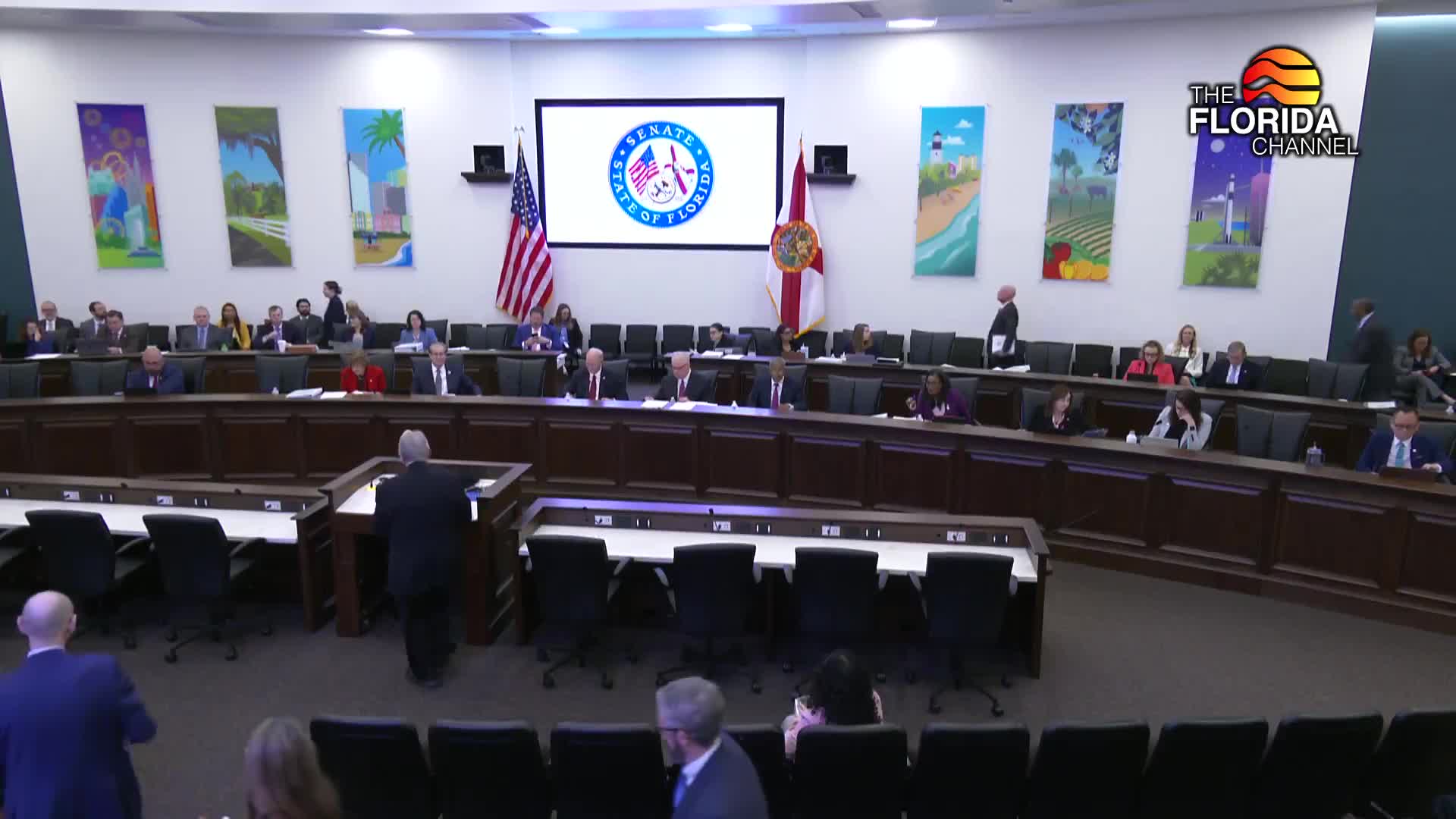Senate committee advances overhaul of scholarship rules to separate 'money-following-the-student' from FEFP
Get AI-powered insights, summaries, and transcripts
Subscribe
Summary
CS for SB 7,030 moves out of the Appropriations Committee after extended debate. Sponsors said the bill creates a student ID for scholarship recipients, monthly payments, standardized applications, and a separate line item for family empowerment scholarships to improve tracking and payment timeliness.
The Appropriations Committee reported CS for SB 7,030, a broad package of changes to Florida's educational scholarship and scholarship-adjacent funding mechanisms, after extended debate and a timely amendment to clarify hybrid service delivery for some students.
President Gates, who presented the measure, framed the bill as a response to rapidly growing school choice and scholarship enrollment. "Today there are 543,000 students in scholarship programs," Gates said. "That's 16% of school age children in Florida and the numbers are rising." Gates told the committee the bill separates Family Empowerment Scholarship funding from the FEFP formula and creates a new student-identification number for scholarship recipients so the state can track where subsidized students are enrolled.
Key provisions discussed in committee include: requiring a single application for all scholarship programs; adding additional documentation at initial application (including proof of residence and birth records); assigning a unique student ID to scholarship recipients; moving scholarship and district payments to a monthly cycle (with a two-month front-loaded payment for homeschool families); requiring families to verify eligibility prior to each payment; standardizing invoicing and reimbursements for homeschool spending; and creating a school-year-end audit by the Auditor General with repayment requirements for scholarship funding organizations if overpayments are identified.
Several senators asked operation-focused questions about timing and cash flow. Senator Polsky and Senator Smith pressed whether the monthly payment cycle and up-front two-month payment for homeschool families would reduce backlogs and speed first-year disbursements. Gates said district representatives told the committee they could accommodate the monthly schedule and that the changes, along with the student ID and monthly verification, would reduce instances of funds going to the wrong provider.
Public testimony included representatives of private and religious schools who warned that earlier deadlines and new verification requirements could risk payments when new schools open late in the summer or when families relocate into Florida after the May 31 initial deadline. A representative of private schools suggested allowance for follow-up corrections for missed parent verifications as long as the student was in fact enrolled and no fraud was present.
Why it matters: The bill would alter how roughly $4 billion in state-funded scholarships are administered and tracked, changing both the administrative timeline and documentation requirements for families, scholarship-funding organizations, and school districts.
Committee action: CS for SB 7,030 was reported favorably by the committee following a friendly technical amendment (barcode 503386) clarifying a hybrid-option for certain unique-abilities scholarship recipients. The sponsor said additional technical refinements could follow before floor consideration.
What the committee did not decide: The bill introduces multiple operational and reporting changes but does not itself appropriate the total dollars for scholarship programs; appropriation levels will be set in the General Appropriations Act, which the committee adopted earlier in the same meeting.
Quotable: "We need a clearer ability to estimate or project student choice accurately," Gates said. "One of the reasons we don't know where students are at different points is because we don't have a tracking number."
